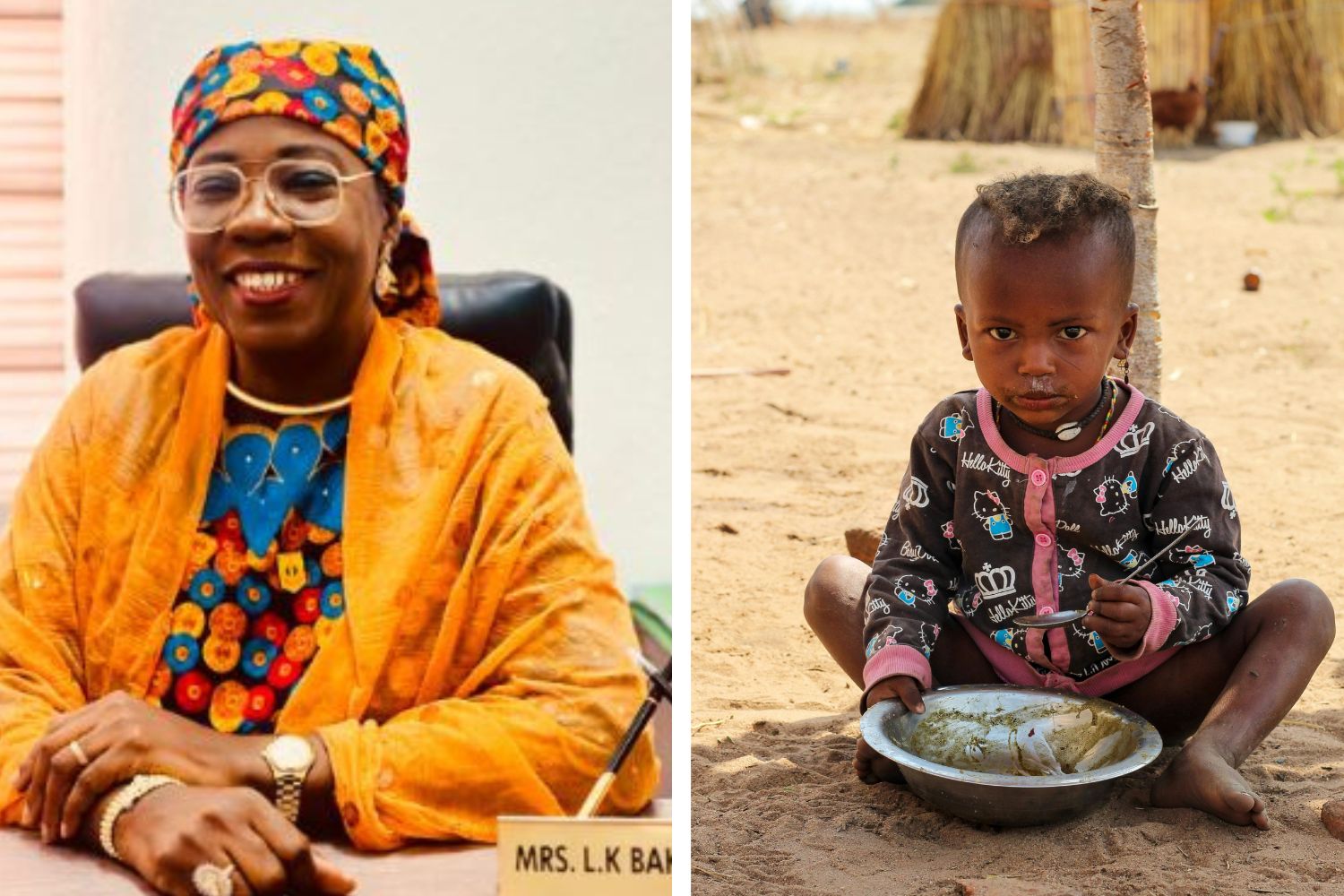A Nigerian nutritionist transforms bouillon cubes into tools against hunger, reaching nearly every home with iron, B12, folic acid, and zinc. A quiet food revolution with massive impact.

@Gates Foundation
In a country where over 40% of the population lives below the poverty line and nearly 83 million people go hungry, the idea that something as small and simple as a bouillon cube could drive a food revolution might sound far-fetched. But that’s exactly what’s happening in Nigeria, thanks to a visionary nutritionist who decided to rethink the humble flavor enhancer.
Her name is Ladidi Kuluwa Bako-Aiyegbusi, and she’s not just a nutritionist—she’s the Director of Nutrition at Nigeria’s Federal Ministry of Health and Social Welfare. Working closely with the National Agency for Food and Drug Administration and Control (NAFDAC) and several private companies, Ladidi is leading a bold initiative that transforms bouillon cubes—ubiquitous in Nigerian kitchens—into vehicles for essential micronutrients.
These cubes are now fortified with iron, vitamin B12, folic acid, and even zinc. In a context where access to fresh produce or animal protein is often a luxury, this small addition has a big impact.
“Even if families can’t afford fresh protein or vegetables, they can afford bouillon cubes, which are far cheaper,”. “When almost half of the children under five who die in Nigeria do so because of malnutrition, standard food programs just aren’t enough.”
Ladidi explains.
The silent reach of fortified flavor
With this simple yet profound innovation, Ladidi’s nutrient-packed bouillon cubes now reach nearly every household in Nigeria, as well as in neighboring Senegal and Cameroon. It’s a quiet triumph of public health design, one that doesn’t rely on costly infrastructure or large-scale distribution systems. It simply rides on a product that’s already integrated into daily life—and supercharges it with nutrition.
The effort hasn’t gone unnoticed. In 2025, TIME magazine recognized her as one of the most influential voices in health, naming her among the TIME100 Health list. That recognition isn’t just a personal milestone—it’s a testament to how innovative public health ideas can take root in the most familiar of places: the kitchen.
Hunger, insecurity, and broken systems
Of course, the bouillon cubes are only part of the picture. Nigeria faces a complex and worsening food crisis. According to Save the Children, 15.6 million children—about one in six—are at risk of hunger, driven by escalating insecurity, conflict, armed banditry, and soaring food prices. It’s not a temporary problem. It’s a deeply structural one.
And the risks aren’t limited to food alone. According to UNICEF, 78 million Nigerian children face a dangerous combination of inadequate access to water, poor sanitation, disease, and climate-related hazards. A third of them don’t even have access to basic drinking water at home. Two-thirds lack basic sanitation. And three-quarters can’t wash their hands regularly, for lack of soap and water.
The consequences are deadly. Nigeria ranks among the ten countries with the highest child mortality rates from waterborne diseases, including diarrheal illnesses. When public health collapses, it doesn’t do so quietly. It fails loudly—and children pay the highest price.
Big changes, small steps
So how do you feed a nation when the basics are out of reach? Ladidi’s answer is disarmingly simple: start with what people already use and improve it. Bouillon cubes don’t solve poverty, but they do something important—they fill nutritional gaps for millions of children, one meal at a time.
It’s a reminder that sometimes, solutions to large-scale problems don’t need to be massive. They just need to be smart, scalable, and sensitive to the realities people face every day.
